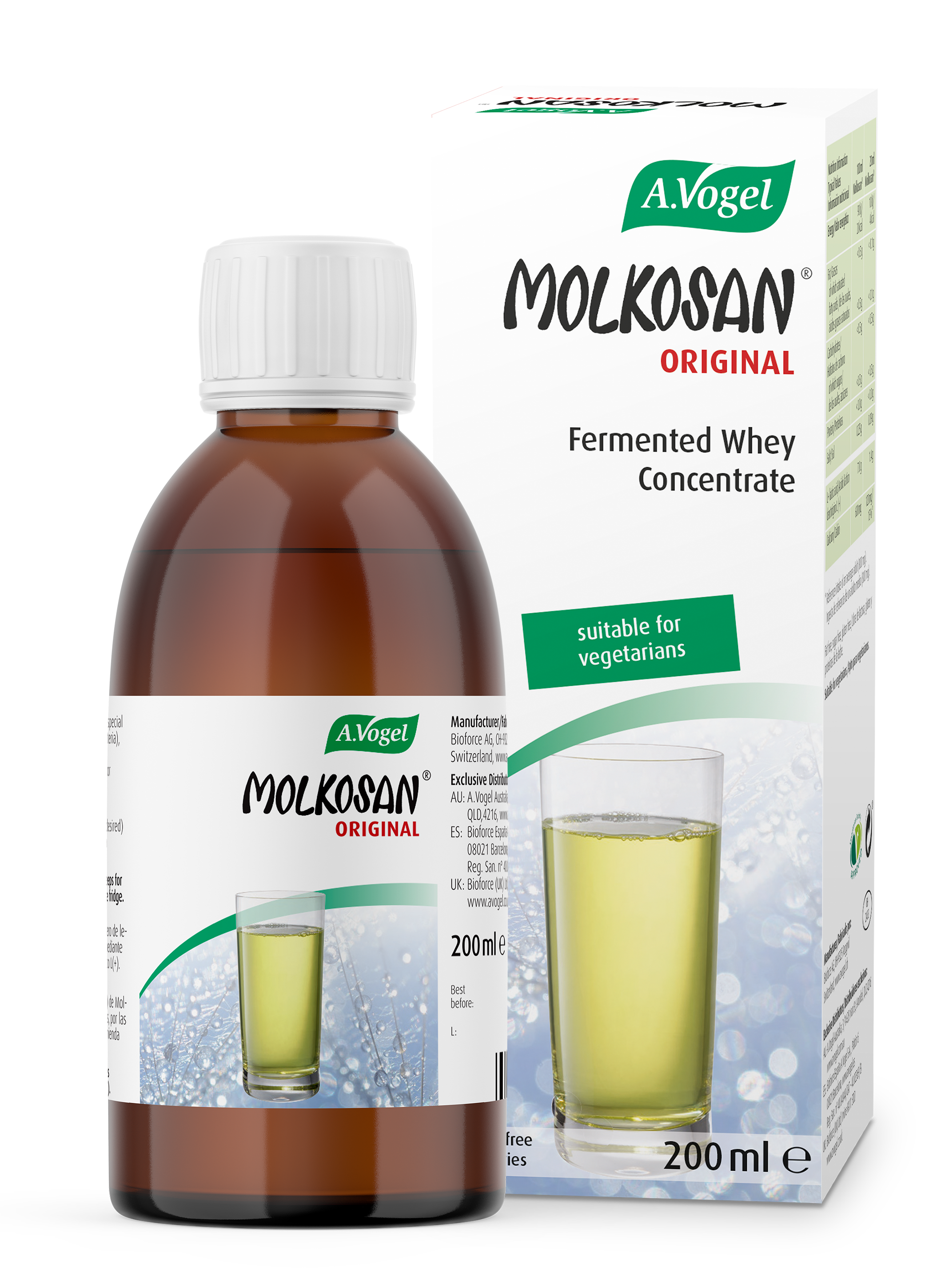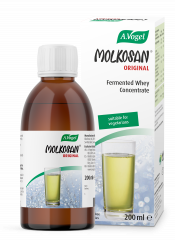What is your gut flora?
It would be difficult to explain how your gut flora impacts your sleep pattern without first clarifying what your gut flora is.
Gut flora, or gut microbiota, simply refers to the population of microorganisms that inhabit your intestinal tract. These microorganisms include hundreds of different strains of bacteria as well as other organisms such as viruses. In fact, your gut flora almost acts like a fingerprint as it will be completely unique to you!
Now, the word ‘bacteria’ might have worried you but don’t panic. As our digestion expert Ali explains in her blog ‘What are good gut bacteria?’ not all bacteria is bad. In fact, some strains of bacteria can be very good for you, helping to keep your levels of unfriendly bacteria under control and even assisting with normal digestive functions, such as breaking down certain foods and promoting the production of B vitamins.
However, it’s important to make sure that your friendly gut flora flourish, otherwise your population of unfriendly bacteria could start to reproduce, causing a number of unpleasant symptoms such as constipation, diarrhoea or skin problems.
How does your gut flora influence your sleep patterns?
It’s difficult to pinpoint exactly how your gut flora influences your sleep patterns but there are a number of possible links that are worth exploring.
Your gut flora can affect your mood
Did you know that around 90% of your body’s serotonin, the feel-good neurotransmitter, is made in your digestive tract? And, according to recent research, your gut microbe could play a role in your production of this vital neurotransmitter.1 This is important because serotonin isn’t just crucial for your mood, it also plays a role in your sleep quality as serotonin can be synthesised by your pineal gland to make melatonin, the sleep hormone.
You also have to consider that your gut has its own nervous system, the enteric nervous system. This system is capable of communicating with your central nervous system and even your brain! However, this can be a double edged sword if your population of unfriendly microbes start to multiply, which can have a knock-on effect on your production of serotonin.
If your production of serotonin slows down, it can have big repercussions for your mood. Low levels of serotonin are often associated with anxiety, low mood and even depression – not exactly conducive to a good night’s sleep! Not to mention, since serotonin helps to regulate your sleep-wake cycle, you may become more vulnerable to sleep disturbance or experience difficulty trying to nod off!
Your gut flora can affect how vitamins and minerals are absorbed
Magnesium, vitamin D, B vitamins – these are all nutrients that can work to promote healthy sleep patterns. Plus, as I’ve mentioned, friendly gut microbes can be very useful for helping your body to absorb and utilise these valuable nutrients. However, if there is an unequal ration of unfriendly bacteria to friendly bacteria, this process of absorption and utilisation can be hindered.
This means that no matter how much good food you’re putting into your body, the nutrients won’t be absorbed well enough for you to feel the benefits which can often lead to deficiencies. Low levels of vitamin D are known to increase day-time fatigue while magnesium deficiency can be linked to increased sleep disturbances and even Restless Leg Syndrome.
Your gut flora can affect your digestion
As I mentioned earlier, your gut flora can play a role in how food is broken down within your digestive tract. The Lactobacillus strain is particularly useful, especially when it comes to food by-products that are tough to breakdown, such as carbohydrates, sugar and dairy. Lactobacillus can also help to produce lactic acid which can optimise the efficacy of your digestive juices and helps with the absorption of certain minerals, such as magnesium and iron.
Impressive but, when your gut flora becomes unsettled things can change very quickly. If you experience an overgrowth of unfriendly bacteria, symptoms such as bloating, constipation, diarrhoea and acid reflux will emerge as your food isn’t being broken down properly, making it difficult to digest and pass through your system. These symptoms, as I explore in my blog, ‘Can sleep deprivation affect your digestion?’ may interrupt your sleep patterns and cause a vicious cycle.
Your gut flora can affect your immunity
Your gut and your immune system are closely linked, with over 70% of your immune cells residing in your digestive tract. In many ways your gut flora helps to protect your immune cells by acting almost like a shield, as they are capable of activating your epithelial cells, the layer of cells that protect your gut from foreign pathogens and germs.2

Interestingly, your gut flora can also regulate your inflammatory immune response, which helps to prevent the immune system from over-reacting and triggering widespread inflammation. Since inflammation is often associated with digestive flare-ups and pain sensitivity, this could help to make sure that your sleep isn’t interrupted by these factors. When your gut flora isn’t functioning properly, it can result in an immune system that’s more vulnerable to pathogens and inflammation – not so ideal for your sleep!
How can prebiotics help?
What are prebiotics and how can they help? Prebiotics, not to be confused with probiotics, are dietary fibres that help to feed your good gut bacteria, creating an ideal environment for friendly gut flora to flourish in. Research has also indicated that dietary probiotics could help to improve your sleep, with one study finding that prebiotics may help to improve NREM and REM sleep after a stressful event.3
Further research is still needed but in his documentary ‘The Truth About: Sleep’, Dr Michael Mosely took a prebiotic for five days and measures how it’s effect on his sleep. At the end of this trial he gave the prebiotic a 9 out of 10 for effectiveness and claimed he was already starting to notice the benefits.4
How do I support my good gut bacteria?
Increase your intake of prebiotics
If you are looking to increase your intake of prebiotics, you could start with your diet. There are a variety of foods that contain prebiotic properties – below I’ve accumulated just a few of my favourites!
If you’re interested in recipes that contain these foods, you could check our healthy recipes here, most of which are 100% vegan-friendly! However, it may not hurt to invest in a good prebiotic supplement too, which is where our Molkosan Original comes into its own.
This healthy prebiotic is one of Alfred Vogel’s original recipes and it’s rich in L+ lactic acid – the perfect food for your friendly gut bacteria! It’s completely lactose and gluten free and can easily be incorporated into smoothies or taken on its own in a little water.
A.Vogel Molkosan Original | Contains Concentrated Whey | L+ Lactic Acid | Suitable for Vegetarians
£7.99 (200ml) In Stock Get it tomorrow, 11th July.
Try a probiotic
If you are considering taking a probiotic, it’s important that you pair it with a good prebiotic, like Molkosan Original. As our Digestion Expert Ali notes, it doesn’t matter how many friendly bacteria reside in your gut, if they lack the conditions to thrive then they will quickly die. It’s also vital that you make sure that the probiotic you choose has been clinically researched and contains only natural probiotic strains.
Reduce your stress levels
Stress is the enemy of your gut. Not only can experiencing stress affect your digestive system, it can also impact your gut flora, altering the balance of bacteria which can cause a number of unpleasant symptoms, particularly if you suffer from a digestive condition like IBS. This is because your nervous system has no way of distinguishing between moderate stress and a life or death situation and, in a fight or flight scenario, digesting your food just isn’t a priority.

As a consequence, your digestive system can slow down and become sluggish, meaning that waste products linger in your gastrointestinal tract, sometimes getting reabsorbed into your bloodstream which can increase your population of bad bacteria. If you want more advice about how to tackle stress, you could check out our Stress Advisor, Marianna’s top 10 stress busting tips!
Keep an eye on your diet
What you eat can have a tremendous impact on your gut flora, with foods rich in sugar often helping to feed your population of unfriendly bacteria. That’s why it’s important to be aware of your intake of processed foods and refined carbohydrates – not only are these foods tricky to break down, they often also contain added sugars and sweeteners.
Instead, think about foods that can help to support your population of friendly bacteria. I’ve already spoken a little bit about prebiotic foods but did you know that there are also probiotic foods you can eat too? In fact, one of this year’s leading food trends could go a long way towards helping your gut flora – fermented foods!
In her blog, ‘My guide to fermented foods for a flatter tum,’ our Digestion Expert Ali highlights the importance of fermented foods when it comes to supporting the balance of friendly bacteria in your gut and the different fermented options that are out there, including fermented yoghurt such as kefir, fermented vegetables such as miso and kimichi, even providing a simple recipe for fermented tomato ketchup which you can easily whip up at home for yourself!
1http://www.caltech.edu/news/microbes-help-produce-serotonin-gut-46495
2https://paleoleap.com/importance-gut-flora-immune-system/
3https://www.sciencedaily.com/releases/2017/02/170225102123.htm
4https://www.optibacprobiotics.co.uk/blog/2017/05/bbc-documentary-gut-bacteria-affects-our-sleep









